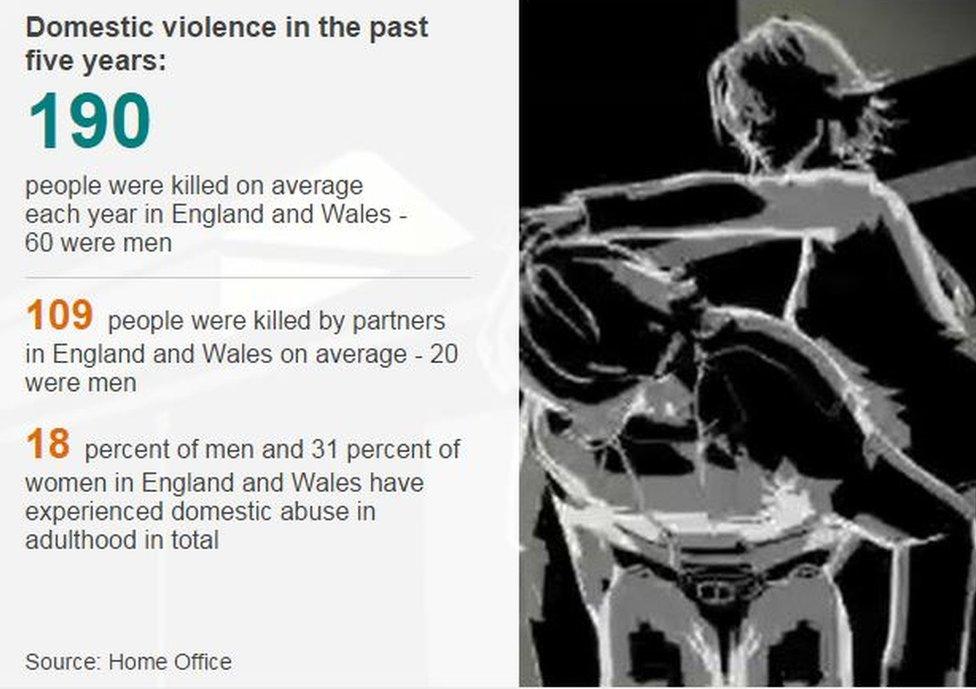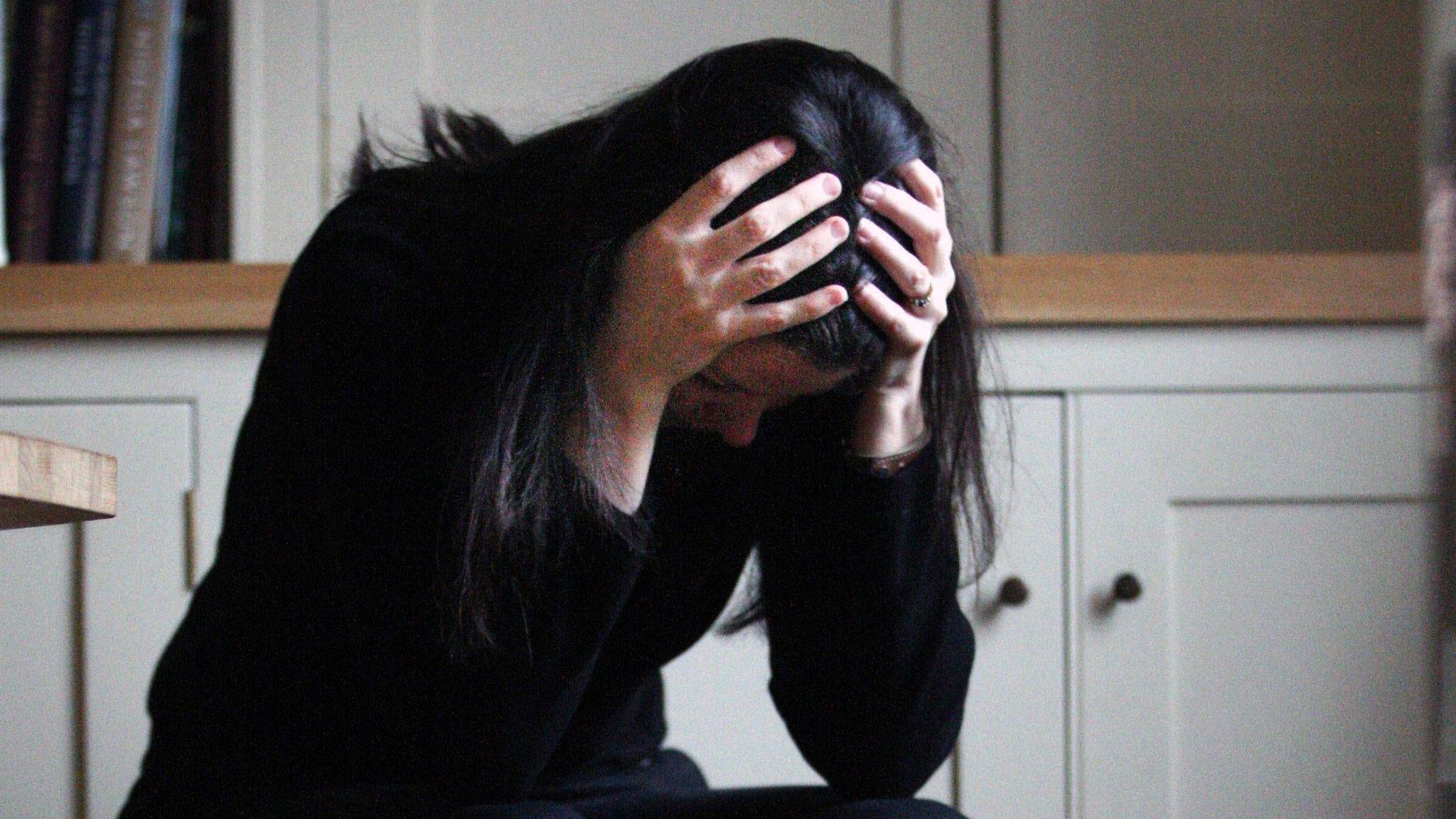Violent domestic abusers to be given one-to-one help
- Published

People who pose a high risk of domestic violence are to be given one-to-one support to change their behaviour.
A new programme, known as Drive, will be aimed at the most dangerous offenders, BBC News has been told.
Backed by domestic abuse charities SafeLives and Respect, it will be piloted in Essex, Sussex and South Wales.
But domestic violence charity Refuge said there was "no evidence" therapy for violent partners was effective.
Rachel Williams from Newport, who suffered 18 years of domestic violence at the hands of her late husband, Darren Williams, said: "If you don't deal with the perpetrator, who's the problem, all they'll do is go on to the next victim."
'Hold accountable'
In 2011, after Ms Williams filed for divorce, her husband burst into her hair salon armed with a sawn-off shotgun and shot her in the leg, before hanging himself in woodland.
Six weeks later, as she was recovering in hospital, the body of her 16-year-old son, Jack, was found hanged in the same spot.
Ms Williams, 44, who has since remarried, said her former husband would have benefited from the scheme.
"He was a control freak and he needed his actions addressing," she said.
"We've got to try and change the mindset of the perpetrator and hold them accountable for their actions."
Domestic violence survivor and campaigner Rachel Williams speaks about what could have helped her situation.
One woman who survived a "hellish five-year marriage to a physically, emotionally and financially abusive man" said she did not believe the Drive scheme would be effective and it would be better to spend the money on support for victims.
"The majority - although not all - of serial perpetrators of domestic violence do it out of choice, not because they have drug, alcohol, social or financial problems," she said.
"They will use this Drive scheme as a way to avoid prison and they will deliberately make it look as though they are reforming until they are 'signed off' and deemed safe.
"They will then simply find another victim and go back to how they were."
'Gold dust'
Sandra Horley, chief executive of Refuge, said there was "no evidence - here or abroad - that therapy programmes for violent partners work".
She added: "On the face of it, it seems like a worthy thing to do. In an ideal world we would approach this from both sides. But we don't live in an ideal world.
"We live in a world were thousands and thousands of women and children are being terrorised and brutalised in their homes and they have nowhere to go. And sadly, finding a refuge space in this country is like finding gold dust."
Although there are already a number of schemes for perpetrators of domestic violence, the Drive project is intended to be different.

It is aimed at dangerous offenders, including those thought to be at risk of causing serious harm or committing murder.
Unlike most existing schemes, which involve group work or family therapy, offenders on the Drive programme will be given bespoke one-to-one sessions.
They will be offered support to tackle any alcohol, drug or mental health problems they may have.
Advice about employment, housing and parenting will also be available.
Those who refuse to co-operate will be monitored closely by police; civil court orders and criminal sanctions will be considered to disrupt their offending behaviour.
'Root and cause'
Diana Barran, chief executive officer of SafeLives, said: "Despite significant improvements for victim safety in the UK there are still 100,000 women who live with high-risk domestic abuse at any one time.
"If you do not hold perpetrators to account, we will continue to see the statistics at a standstill.
"Focusing on crisis management is of course vital but we want to help victims today and reduce the number of victims of tomorrow - and we can only do this by getting to the root and the cause of the problem - the perpetrator."
It is expected that 900 offenders will be asked to take part in the scheme over the next three years.
It also has support from Social Finance, a not-for-profit organisation, and is funded by police and crime commissioners in the three areas, as well as the Lloyds Bank Foundation for England and Wales and the Tudor Trust.
- Published29 December 2015

- Published15 December 2015
